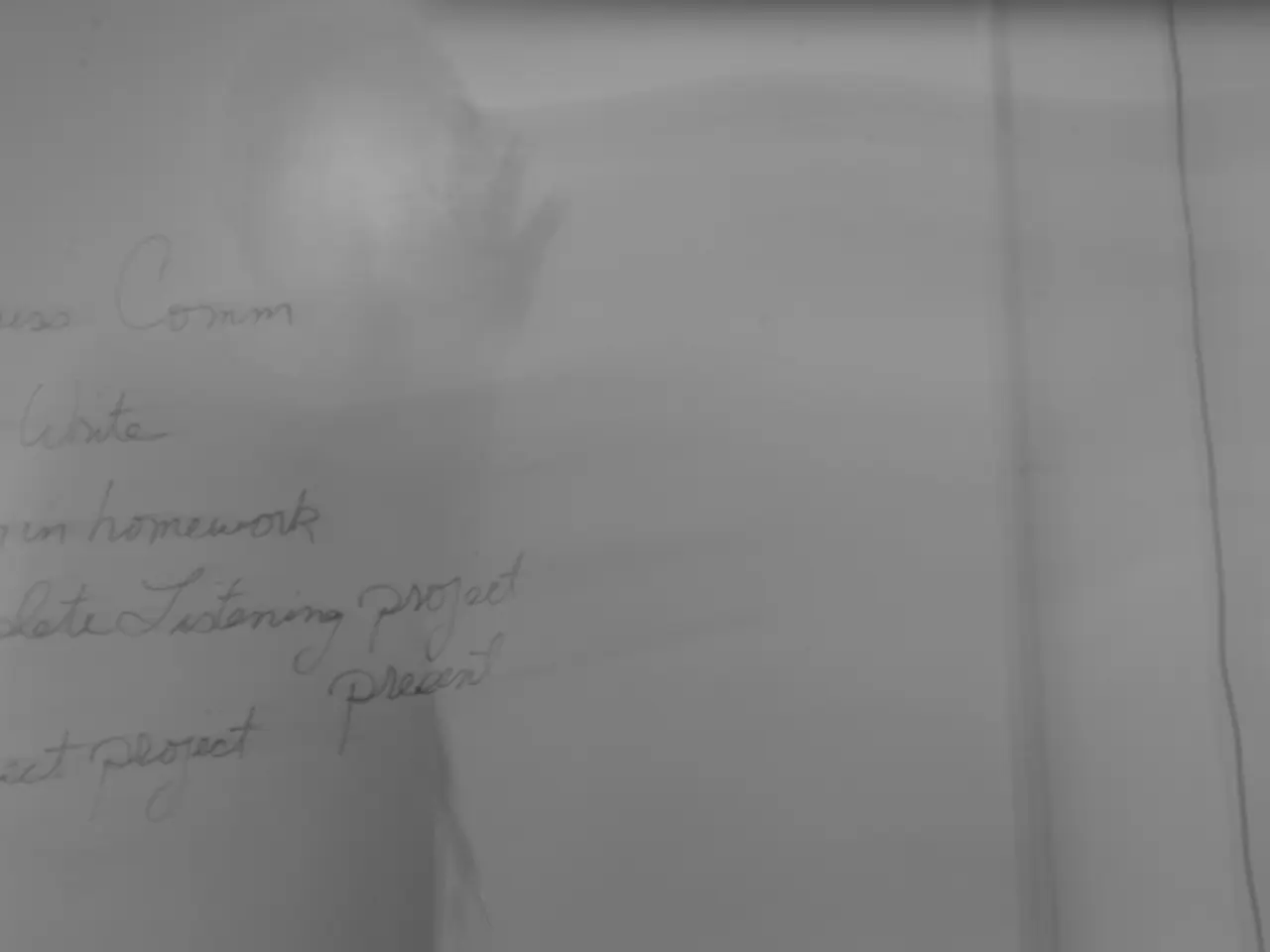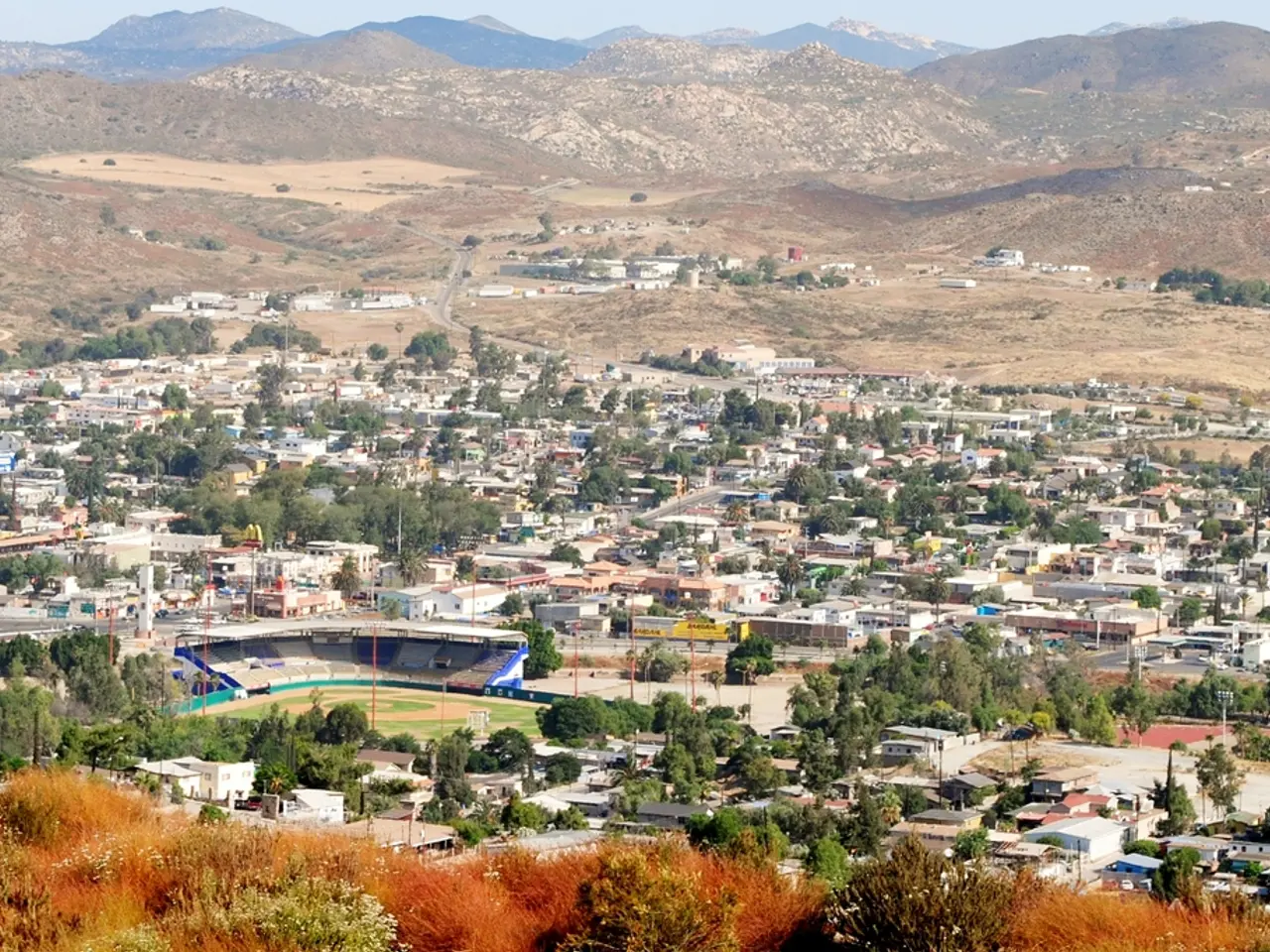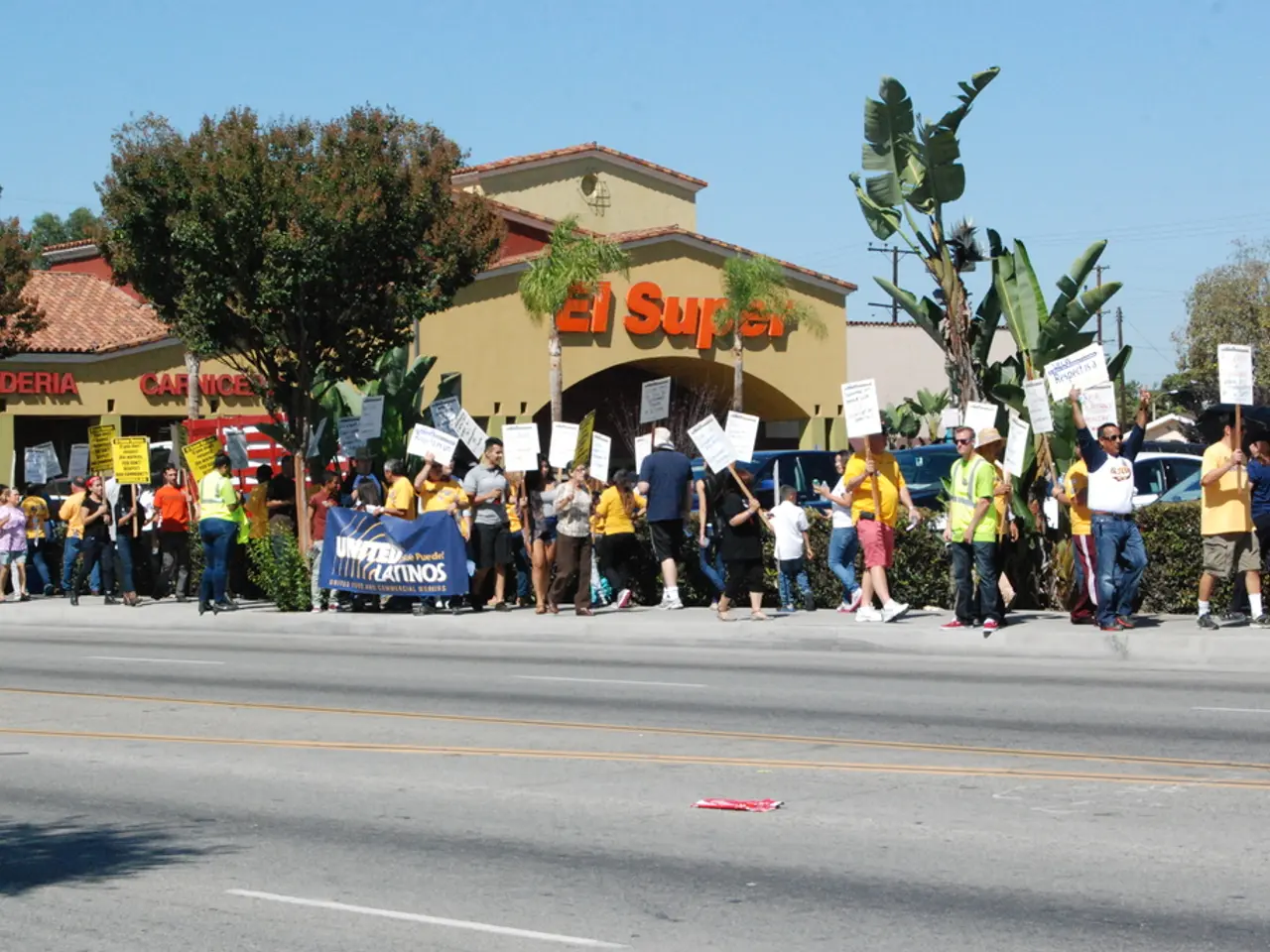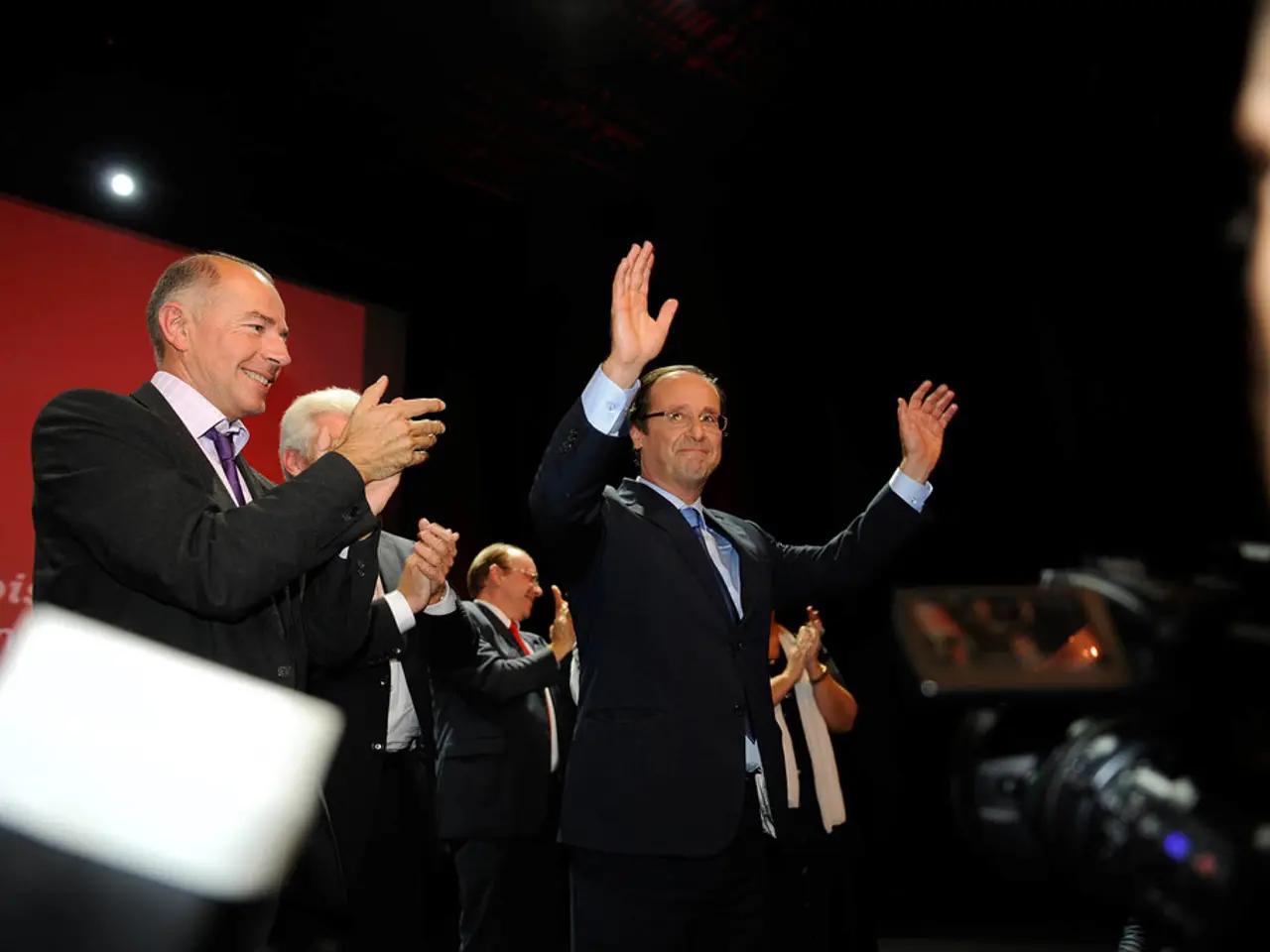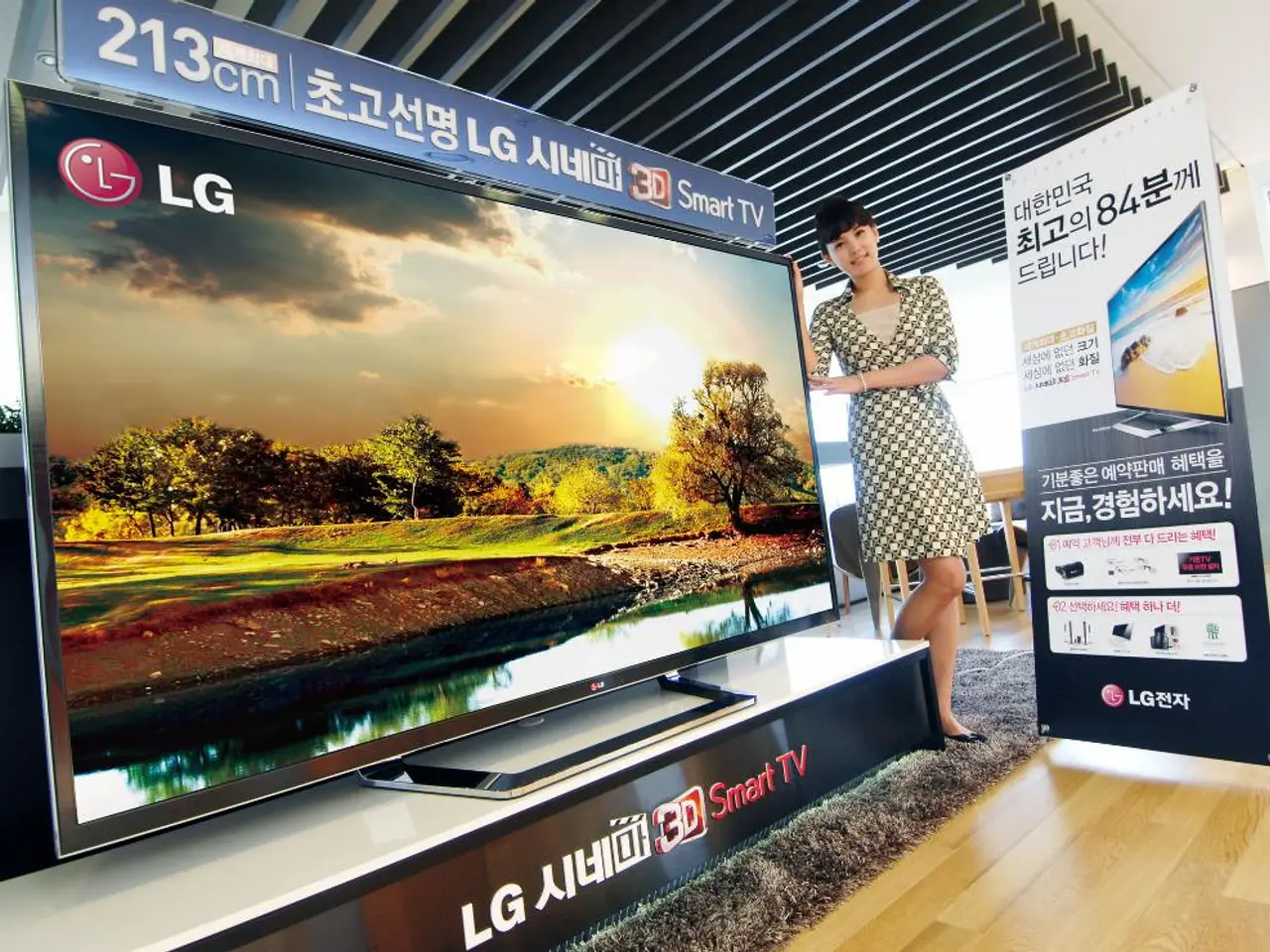Trump Imposes Tariffs Beginning This Weekend
==========================================================
As the deadline for new tariff rates on U.S. trading partners approaches, several countries have negotiated new deals to avoid higher taxes on their imports. However, many nations are yet to reach agreements, facing potential tariff increases starting August 1, 2025.
The Trump administration initially set a tariff deadline for July 9, 2025, but it has been extended multiple times. Countries like Switzerland and Norway are among those that have not finalised negotiations before the August 1 deadline, leaving them uncertain about their specific tariff rates.
Some countries, such as Laos and Myanmar, face higher tariff rates of up to 40-41%. The EU, Japan, South Korea, Indonesia, and the Philippines have negotiated new trade frameworks and managed to avoid the highest tariffs. Mexico, on the other hand, has been granted a 90-day tariff suspension following negotiations.
Trump had threatened a 30% rate for Mexico and 35% for Canada in letters earlier this month. However, Mexico will continue to pay its current rates of 25% for all products not subject to the U.S.-Mexico-Canada Agreement, 25% for cars, 50% on steel, aluminum, and copper until a new deal is announced.
The U.S. is set to impose new tariff rates on trading partners on Friday, with the baseline rate for all partners likely to increase to as much as 20%. The European Union's new tariff rate is 15%, down from 30%. Japan's new tariff rate is also 15%, down from 25%.
Vietnam has negotiated a new tariff rate of 20%, down from 46%. The U.K. has secured a new tariff rate of 10% on most goods, including up to 100,000 imported cars, down from Trump's 25% threat. India's new tariff rate is 25%, down from 26%.
South Korea's new tariff rate is 15%, down from 25%. Brazil's new tariff rate is 50%, with exceptions on approximately 40% of products, up from 10%. Thailand, Cambodia, and Pakistan have reached new trade deals with the U.S., but the rates have not been publicly disclosed.
The Philippines has negotiated a new tariff rate of 19%, down from 32%. Indonesia has also negotiated a new tariff rate of 19%.
It is worth noting that only nine countries have announced agreements with the Trump administration, far short of its goal of 90 deals in 90 days. A federal appeals court could potentially block the tariffs from taking effect on Friday.
In an expected move, Trump is expected to sign executive orders on Thursday to set new tariff rates for some countries that have not reached new agreements with the U.S. The tariff situation remains fluid, with many countries still negotiating to avoid the increased rates.
[1] Source 1 [2] Source 2
- The ongoing policy-and-legislation negotiations regarding tariff rates involving multiple countries, including Switzerland and Norway, have political implications, as these nations are yet to finalize agreements before the August 1, 2025, deadline, causing uncertainty about their specific tariff rates.
- General news outlets are reporting on the fluid state of policy-and-legislation talks surrounding tariff rates, with some countries, such as Brazil and Thailand, securing new deals while others, like Cambodia and Pakistan, have not publicly disclosed their new rates, leading to varying tariff rates between trading partners.
